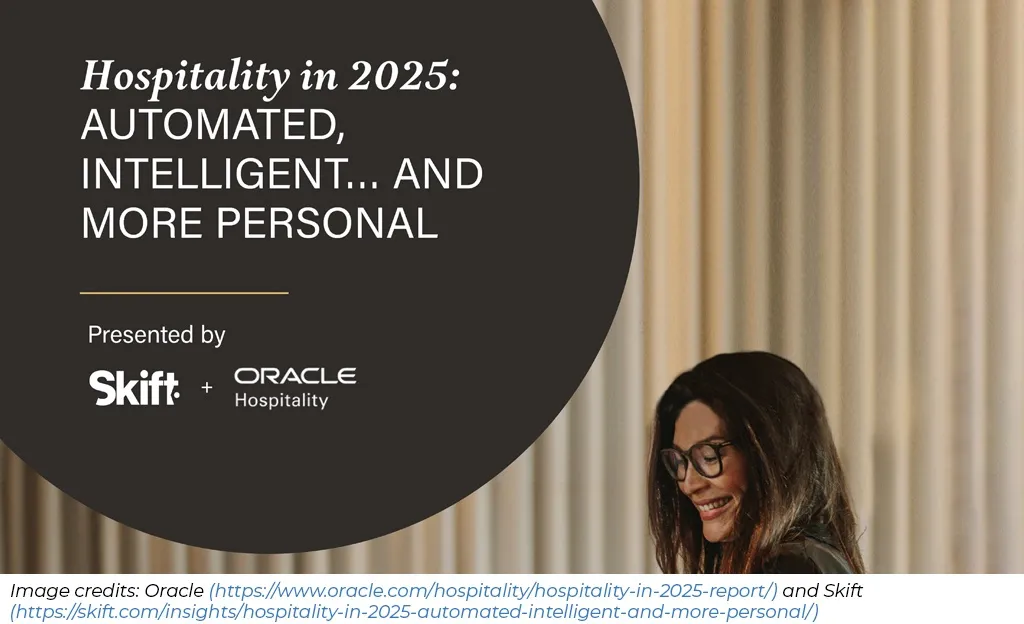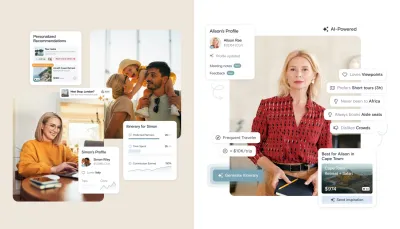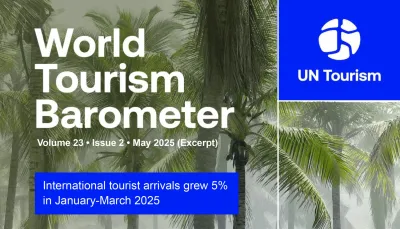Skift
Metaverse
Hospitality Trends 2025
AI in Hospitality
Contactless Check-ins
Hotel Automation
Personalized Guest Experiences
Labor Shortages Solutions
Hospitality Revenue Models
Hospitality 2025: A Technological Revolution for Personalization and Efficiency

Skift
Metaverse
Hospitality Trends 2025
AI in Hospitality
Contactless Check-ins
Hotel Automation
Personalized Guest Experiences
Labor Shortages Solutions
Hospitality Revenue Models
As the hospitality industry approaches 2025, a new era of innovation is reshaping guest experiences and operational strategies. Oracle and Skift's recent report highlights key trends that are transforming the sector, driven by advancements in technology, evolving consumer expectations, and the urgency to address labor shortages.
Personalization and the Rise of Automation
Guests now demand a blend of personalization and efficiency. Technologies like artificial intelligence (AI), predictive analytics, and mobile solutions are enabling hotels to anticipate and cater to individual needs throughout the travel journey. For instance, AI-driven personalization enhances marketing, optimizes room experiences, and automates routine tasks, allowing staff to focus on meaningful interactions.
Contactless as a New Standard
The pandemic accelerated the adoption of contactless services, which have now become a cornerstone of guest satisfaction. Features like mobile check-ins, automated room access, and touchless payments are no longer optional but expected. According to the survey, over 53% of travelers prefer contactless check-ins, while hoteliers report significant investment in these technologies.
Addressing Labor Shortages Through Technology
Labor shortages remain a pressing challenge for the industry, prompting a shift toward employee-centric technology. Mobile-enabled property management systems and automated messaging are freeing staff from mundane tasks, enabling them to deliver personalized service efficiently. Enhanced tools also play a pivotal role in attracting and retaining talent, providing intuitive interfaces and streamlining operations.
Unbundling Revenue Streams
Revenue models are shifting as hotels explore unbundling services to meet individual preferences. Nearly 90% of surveyed guests expressed interest in paying only for amenities they use, echoing a trend popularized by the airline industry. Hoteliers are leveraging AI to dynamically price and offer add-ons, from early check-ins to curated experiences, enhancing both revenue and guest satisfaction.
The Future: Metaverse and Advanced Analytics
While the metaverse is a buzzworthy concept, its practical applications in hospitality remain uncertain. Only 7.8% of consumers see in-room VR consoles as essential, reflecting cautious adoption. On the other hand, hoteliers are prioritizing AI-powered analytics and cloud-based solutions to deliver seamless, secure, and personalized services.
Balancing Innovation and Hospitality
Despite rapid technological adoption, the industry remains committed to preserving the human touch. As Scott Strickland of Wyndham Hotels noted, the goal is to leverage technology to enhance—not replace—hospitality. By integrating advanced tools while focusing on guest connections, the industry is poised to redefine itself for the digital age.
Conclusion
The hospitality sector is embracing a tech-driven future where personalization, operational efficiency, and guest satisfaction take center stage. As the industry navigates these transformations, the balance between innovation and the essence of hospitality will determine its success in 2025 and beyond.



